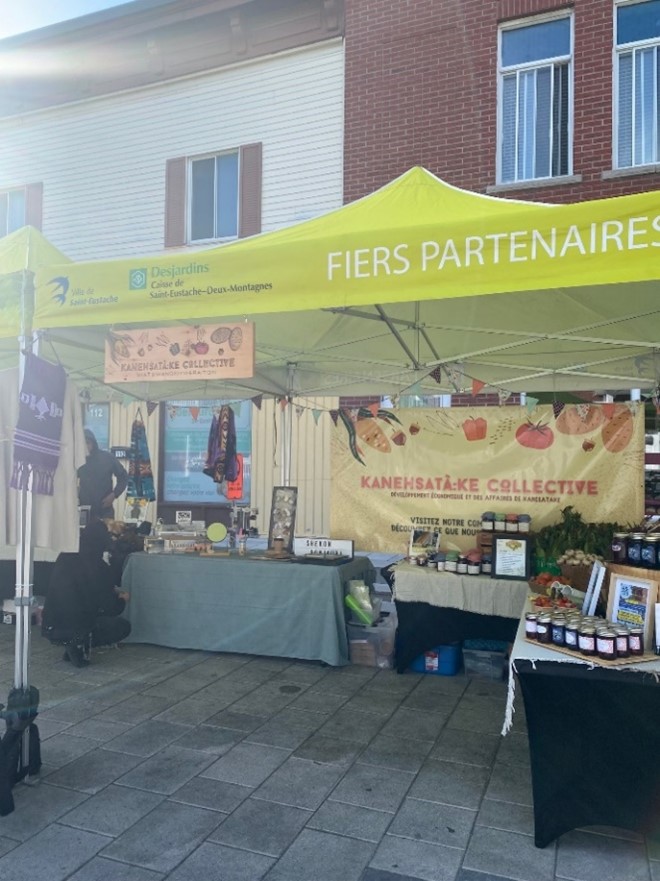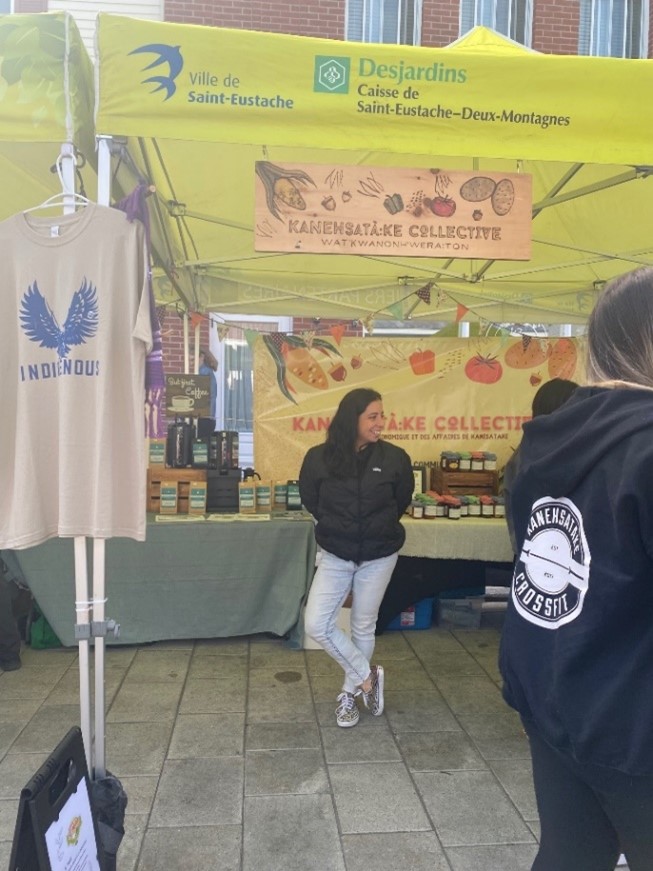Reconciliation in Kanesatake through Indigenous tourism
Over the past few months, the Mohawk Council of Kanesatake, a community of approximately 4,000 members located on the North Shore of Montreal, has been working on projects that highlight their unique cultural identity. In addition to contributing to cultural outreach, the Mohawk Council of Kanesatake's projects are leveraging the Mohawk Nation in terms of capacity building, culturally appropriate employment opportunities and sustainable economic benefits.
Marked by the Oka Crisis, the community of Kanesatake views cultural tourism as a way to bring Indigenous and non-Indigenous people together.
"It allows us to see that they have an open heart to share, exchange and tell our story," states Véronique Vincent, Cultural Project Leader for the Mohawk Council of Kanesatake.
In the summer of 2022, for the first time ever, the Kanehsàta:ke Collective, a group of artisans and entrepreneurs from the community, participated in public markets in the region. Other outdoor activities, such as the interpretation of medicinal plants and the development of community gardens, were also very successful. During these activities, the surrounding communities demonstrated their openness and enthusiasm toward the Mohawk culture.
"Tourism development does not only have an economic connotation, but it also has a reconciliation connotation. It's as much for us inside the community as it is for the perception of people outside," explains Vincent.
The Kanehsàta:ke Collective booth at an event in the city of Saint-Eustache.


By developing its tourism industry, the community is hoping to achieve much more than economic benefits. In particular, it aims to:
- increase the interest of young people in their culture, language, and history
- offer young people quality jobs in the tourism sector within their community and
- highlight and promote the cultural richness of the Kanesatake territory
Several other projects, such as Oka Park, are currently being negotiated with regional partners, to ensure that Mohawk culture is an integral part of the tourism experiences available in the area.
The Mohawk Council of Kanesatake has received support from Indigenous Services Canada under the Quebec Indigenous Tourism Initiative.